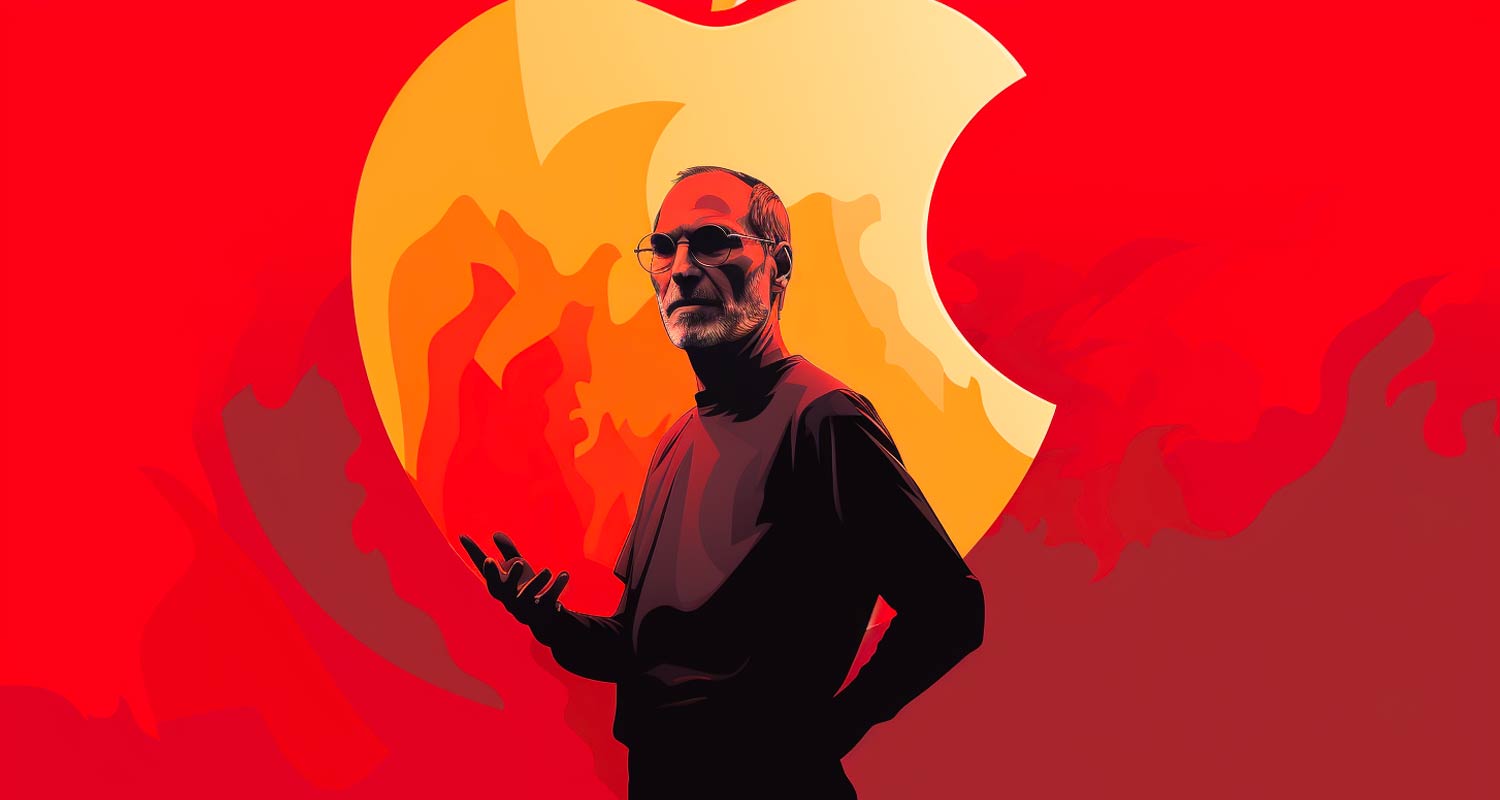Try our mobile app

Steve Jobs You wouldn’t have exactly called the late Steve Jobs a “man of letters”, but he certainly loved a searing e-mail. One of the Apple co-founder’s most famous writings is this 2005 memo to Bruce Chizen, Adobe’s CEO at the time: Bruce, Adobe is recruiting from Apple. They have hired one person already and are calling lots more. I have a standing policy with our recruiters that we don’t recruit from Adobe. It seems you have a different policy. One of us must change our policy. Please let me know who. Steve The e-mail, along with many others, was submitted as evidence in a fascinating legal saga between the US department of justice’s antitrust unit, eight Silicon Valley companies and tens of thousands of tech employees who contended their earnings were repressed because of this collusion between company bosses. The companies — Apple, Adobe, Google, Intel, Intuit, eBay, Pixar and Lucasfilm — were ultimately forced to pay almost US$500-million in settlements. Thanks to his way with words, Jobs made himself the centre of attention in what is surely one of the most caught-red-handed cases in the history of the US tech industry. “I would be very pleased if your recruiting department would stop doing this,” he wrote to Google president Eric Schmidt in 2007, forwarding a cold e-mail from Google’s recruiting team. The recruiter was promptly fired. I feel a visceral feeling right now, as if someone has broken into our home and stolen something In a separate incident, Google co-founder Sergey Brin told colleagues he had an “irate” call from Jobs who had threatened “war” if Google continued to try to recruit talent from Apple’s web browser team. Offers to any more people should stop until they “get permission from Apple”, Brin instructed. “There was no question they were colluding,” recalled economist Orley Ashenfelter, who testified as a witness in one of the civil cases. The legal fallout “sent a lesson to the human resources people in the various companies as to what is really appropriate to do. The question is: how long does that lesson last?” Today, as some of the same players become locked in AI talent wars, we’re starting to get a sense of what Jobs was so afraid of: a no-holds-barred fight for the best people, with employees holding all the cards. Top engineers are being courted like starting pitchers and star quarterbacks. Meta Platforms, for instance, is going after talent with “pay packages of up to $300-million over four years”, reported Wired, citing internal sources. (Meta disputes the framing.) Aggression Whatever the size of the packages, the aggression is causing considerable anguish among company leaders. “I feel a visceral feeling right now, as if someone has broken into our home and stolen something,” wrote OpenAI’s chief research officer, Mark Chen, in a memo obtained by Wired. Few will have much sympathy for those at the top, I suppose, but other risks affect the rank-and-file. Such outlandish packages upend the compensation scales that give some semblance of fairness across a company, Ashenfelter said. Deedy Das, an AI investor with Menlo Ventures, told Business Insider there’s a “sense of jealousy, envy and helplessness”. Read: Microsoft wants AGI access – OpenAI says no But OpenAI CEO Sam Altman, while fiercely competitive, knows better than to try to do what Jobs did and stop companies from poaching his talent with quiet backroom deals. For one thing, the main players seem to have a growing contempt for one another. And more significant, the option for talented AI engineers isn’t limited to the largest companies. “Compared to the past,” points out Firas Sozan, CEO of tech recruitment group Harrison Clarke, “you don’t need as many engineers to build a product. I think partly why Mark Zuckerberg is doing this is because an amazing engineer will just end up speaking to Intel Capital or Andreessen Horowitz and get term sheets to start their own company.” Meta CEO Mark Zuckerberg. Manuel Orbegozo/Reuters Maybe, as a result of all this, we’ll start to see a swing back to tech companies trying to convince workers that their role isn’t a job but a calling that’s greater than the number of commas in their pay cheques. “Are we seeing the reasons for joining companies less about the compensation and more about what’s actually being built? 100%,” Sozan says. OpenAI’s pitch to prevent its workers from leaving is to make the case that artificial general intelligence is the company’s one and only true goal, and every part of its work is dedicated to achieving it, whereas those working on Meta’s AI will spend at least some of their time thinking about how it can be used to better serve up shoddy viral videos to your grandmother. “Missionaries will beat mercenaries,” Altman said to staff in a memo. Ilya Sutskever, an OpenAI co-founder who left to launch his own start-up, Safe Superintelligence, reassured employees that he would not be entertaining efforts to sell the company amid rumours Meta tried to buy the entire team. “We have the compute, we have the team and we know what to do,” he wrote. “Together we will keep building safe superintelligence.” Nevertheless, he appears to have lost his CEO, Daniel Gross, to Meta. Read: Apple considers ditching its own AI in Siri overhaul The bring-your-whole-self talk went a little out of fashion in the post-pandemic layoff era — which for those outside AI teams is still happening — but I wouldn’t be surprised to see a new variant. AI companies can’t rely on the bully tactics employed by Jobs to keep employees from seeking better and more lucrative opportunities. Instead, leaders must convince employees that their AI work is the one that will matter most in the history books. Whether employees will buy it is another thing. — (c) 2025 Bloomberg LP Get breaking news from TechCentral on WhatsApp. Sign up here . Don’t miss: ChatGPT’s mental health costs are adding up